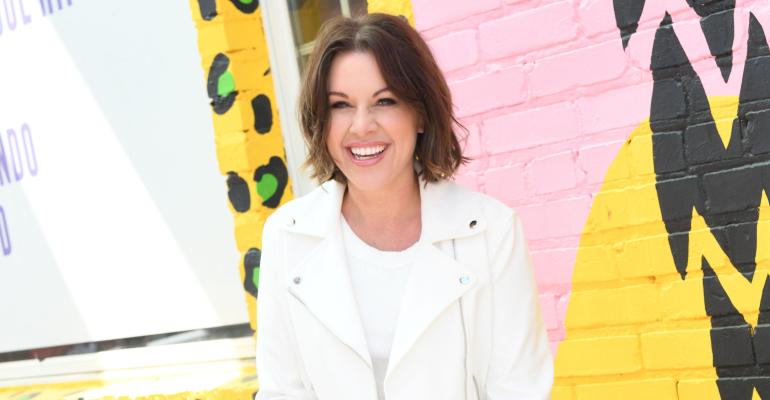Megan Henshall, CMP, DES
Global Events Strategic Solutions Lead
For creating educational resources that help expand meeting professionals’ concept of event inclusivity to include neurodivergent individuals
“It all started with the pandemic, like so many innovation efforts have,” says Megan Henshall, CMP, DES, who leads strategy for Google’s global event solutions team. She is the force behind Google’s Neu Project, an initiative to introduce event professionals to neurodiversity and accommodations that can help a broader range of individuals attend events successfully.
Almost as soon as the events team had shifted to digital-first production in 2020, Henshall and other experience designers began to consider what the return to office might look like. “There were so many big questions,” says Henshall. “How would people be comfortable re-gathering? What sort of spaces would best support different personas?” She brought together people from inside and outside of Google to create the Google Experience Institute. “All of this work started there,” she says, “We had about 30 core members, and we took almost a full quarter to research,” looking at how behaviors were changing as a result of the pandemic.
They held focus groups with other experience designers and event leaders and “started to hear that people were going to want a really empathetic approach to design as we started to re-gather. And that took us down a path of rethinking what empathetic design looks like in a post-pandemic world.” Throughout the process, they discussed all kinds of meeting-design tactics that don’t serve people well, such as long business sessions, few breaks, uncomfortable chairs, and no natural light in the session rooms.
At the same time that Henshall was exploring attendees’ changing needs, her son was diagnosed with autism, and she began a new journey advocating for him. “All of these things started to piece together for me,” she says, and her Experience Institute research shifted, exploring what was available to event designers to help them understand neurodiversity and to design events with neurodivergent communities in mind. “We really couldn’t find anything,” she says. “That’s why we decided to drop some of the other priorities and really focus on launching the Neu Project.”
Neu Resources
After almost a year of work, the Neu Project debuted last October with a website offering a 59-page “Event Professional’s Guide to Neuroinclusion” and the “The Neuroinclusive Event Checklist,” with practical ideas for better connecting with neurodiverse individuals, such as those with autism, obsessive-compulsive disorder, dyslexia, and attention-deficit/hyperactivity disorder.
The resources are available to all. “We’ll even provide editable versions if you want to use them for your own purposes,” says Henshall. “The idea is to make this stuff wallpaper. We want, within a handful of years, for people to go to an event and wonder why they aren’t being accommodated as opposed to the opposite, which is what is happening today.”
Henshall is getting the word out about the Neu Project, speaking at customer events for Marriott International and Hilton, and networking with other enterprise event executives in the Event Leaders Exchange. “It’s been heartwarming to see the response. I think so many people see themselves or their children or their loved ones reflected in this work.
“This project is a love letter for people like my son, for neurodivergent people, but it also has so much possibility to create better environments, better experiences, better design for us all, because there is no normal.”
While Google’s experience designers are already making changes from the research, Henshall sees new awareness as the most meaningful result of the work. “It’s people asking questions and thinking about these communities. There’s still so much we don’t know about the ways in which we can accommodate and care for neurodiverse individuals because they’re so ridiculously good at masking and taking care of themselves because they’ve always had to. The way the project has helped people feel considered and represented has created a huge emotional and mindset shift.”
Henshall’s advice for those with an initiative they want to push forward: “Socialize it with people that you trust and watch how they respond. As I started to talk about the [the Neu Project], I could see people lean in; I could see them light up. It was really validating that this was something that mattered and that needed to happen. And so that is my number one tip: socialize your idea, then listen and observe, and that will tell you everything that you need to know about the viability of the work.”





